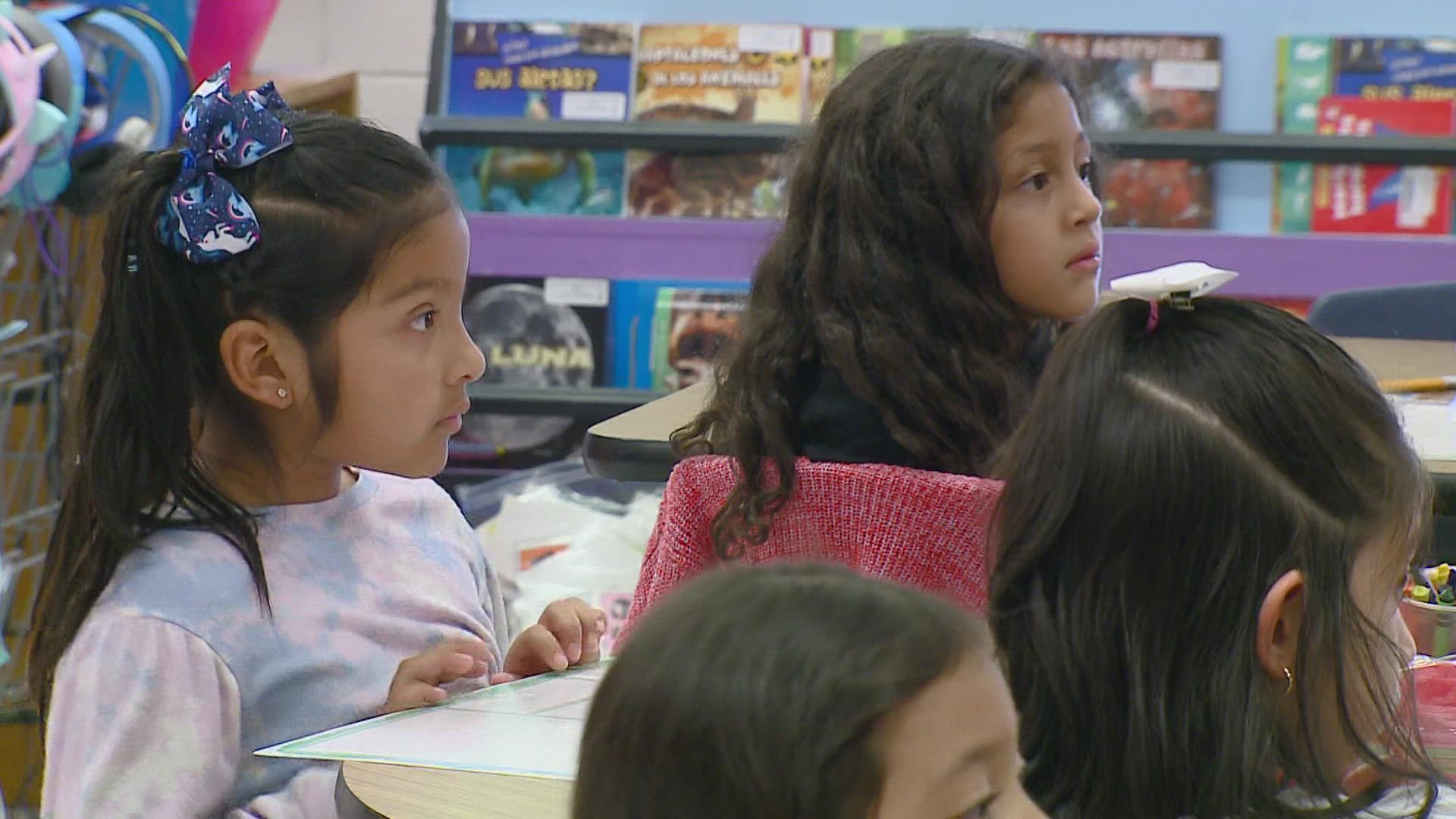GUILFORD COUNTY, N.C. — School districts in the Piedmont Triad are still recovering from pandemic challenges as the state releases new data on student performance
For the first time since 2018-19, North Carolina's Department of Public Instruction (DCPI) released its full School Accountability and Student Test Performance Results.
Both Guilford County Schools (GCS) Superintendent Dr. Whitney Oakley and Winston-Salem Forsyth County Schools (WS/FCS) Superintendent Tricia McManus cautioned that the data for 2021-22 shouldn't be compared to 2018-19 due to pandemic challenges greatly affecting student learning. Dr. Oakley also noted that test scores are only one way to measure student success.
"We can’t really compare years leading up until now," said Dr. Oakley. "It’s going to take more than a year, more than a summer school. The national research is telling us that we have several years ahead of us before we are able to get back to pre-pandemic levels."
Fifty-three percent of GCS schools met or exceeded expected academic growth. Twelve schools exceeded expected growth. Seventy-five percent of WS/FCS schools met or exceeded expected academic growth. Twenty-five of those schools exceeded the expected growth.
"What that means is when compared to like schools across our entire state their students do better, they exceeded the average results and that is really incredible because these schools faced the same challenges as we all did across the state and across the country," said McManus "We also believe that all of our schools should be at the place of meeting or exceeding growth and so next year (...) that is our goal."
In the Alamance-Burlington School System (ABSS), 29 of 36 schools met or exceeded overall growth. Fourteen of those schools exceeded overall growth.
“These scores indicate that face-to-face instruction strongly impacts student learning. I’m confident that this growth will continue as we return to normalcy within our school district. I’m pleased with these results, but know we have lots of remaining work to do,” said Dr. Dain Butler, ABSS Superintendent in a press release.
Dr. Oakley and McManus also reinforced the importance of in-person learning. On Thursday, McManus called for the community and families to make sure children are attending school because that will be key to recovery.
"We can increase the opportunity gap and close the achievement gaps as a result," said McManus. "So we’ve got work to do, we know that, we are excited about the growth that we've seen, more excited when we look we are not considered a low performing district."
GCS said they will need to continue their tutoring programs for students, summer 5th quarter programs, and their learning hubs to continue to address learning loss. Similarly, WS/FCS is taking a variety of approaches to help with learning loss including hiring literacy coaches, graduation coaches, and other instructional support to help teachers. They are also using new K-12 ELA and Math textbooks for the first time in over 15 years along with a 1:1 device plan.
"We know we have work to do," said McManus. "We are going to keep plugging away at that work we have a very clear strategic plan: two major big rocks around culture and climate and literacy. We’ve got resources in the hands of our teachers, we’ve got support out in our schools, we're using our ESSER dollars in very meaningful ways and educating the whole child and we are expecting just continual improvement of results the school year."
With a 91.8% four-year cohort graduation rate, GCS said it has the highest graduation rate out of larger districts in North Carolina and the highest in the district's history.
"I also think that students that graduate are prepared for college and so we are continuing to look at our hopes and dreams for our graduates but also making sure that they are proficient and able to enter the workforce, not having to take as many remedial courses in college, and that will take us working together to do that," Dr. Oakley said.
GCS said the graduation rate gap between White and Black students narrowed by 3.2 percent percentage points over the past 10 years.
"This district has been focused for decades on equity and that’s not gonna stop, but that means getting the resources that students need to those students and so we want all students to graduate ready to be successful but we also need to make sure that we are intentional about our resources that we are intentional about hiring great teachers and keeping great teachers and that work will continue," Dr. Oakley said.
Dr. Oakley said as they move forward, they can use knowledge from the pandemic to help guide them.
"What we learned is that we can be better because of difficult times but we also have to reimagine what we want for kids and be in a place to be able to do that," said Dr. Oakley.

